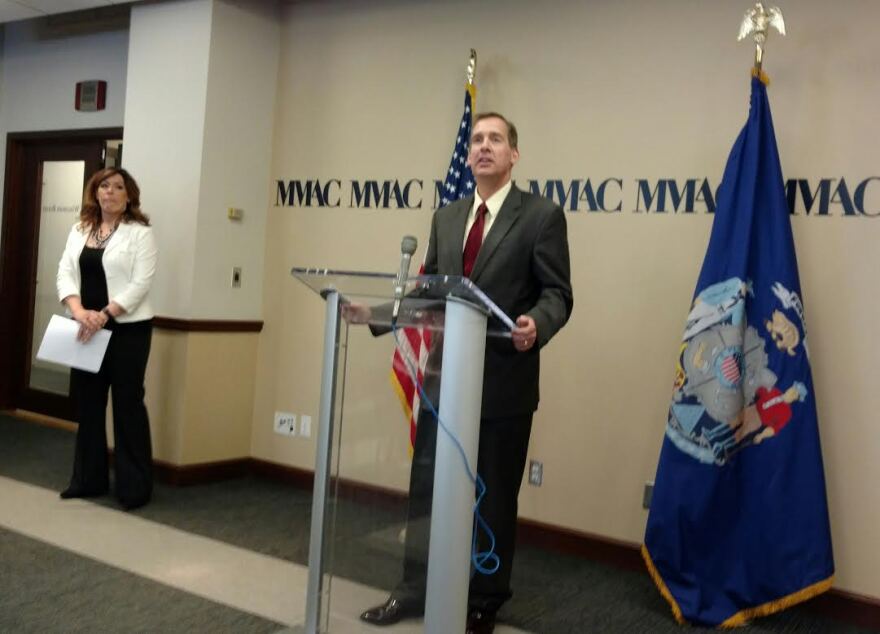Has your car ended up in the shop after hitting a pothole on a Milwaukee road or highway? A Washington D.C. based transportation research group says that’s happened to quite a few drivers in Milwaukee. Bad roads cost the average Milwaukee driver more than $2,000 a year.
Those costs come in the form of repairs, wrecks, wasted gas, and time spent stuck in traffic.
The research group is called TRIP, and associate director Carolyn Bonifas Kelly says their latest report on Wisconsin roads find 56% of the major roads in the Milwaukee urban area are in poor or mediocre condition. That means they’re full of potholes, cracks and ruts.
Kelly adds the time costs of driving on bad roads is significant. She says, "Here in the Milwaukee area the average driver loses 38 hours each year as a result of being stuck in congestion, so they’re spending almost a full working week staring at the break lights ahead of them."
Steve Bass of the Metropolitan Milwaukee Chamber of Commerce says that’s not just bad for individual drivers. He says that’s bad for business:
Our mission is to create a globally competitive economy in an innovation age, and we are not able to do that. We are not able to remain competitive, or become more competitive and grow our economy without an efficient and effective system of roads and highways, and it’s a problem that can’t be ignored.
In fact, Baas says Wisconsin lawmakers in Madison need to pony up hundreds of millions of dollars more than the 5.6 billion budgeted for transportation projects between 2015 and 2017 in the biennial budget. To repair, maintain and improve the state’s 112,000 miles of public roads and highways, Baas says the state may have to increase vehicle registration fees. He says Governor Walker may also have to rethink something he’s pledged not to do…increase the gas tax. Another controversial option for generating revenue is toll roads.
Baas says he knows it will be difficult to find revenue generating solutions that everyone agrees on, but he says, "...we have to have this discussion, and I think it’s irresponsible to leave various options off the table as we start this discussion."
Rather than increase taxes and fees, the state legislature approved a plan to borrow up to $850 million to pay for transportation projects during the current 2015-2017 budget.





